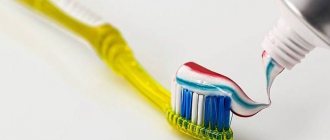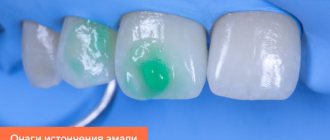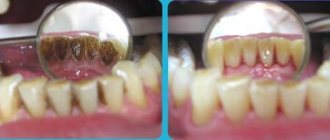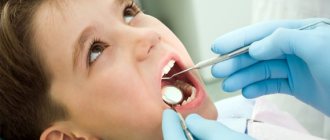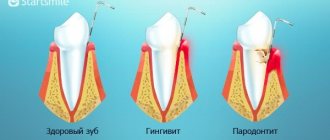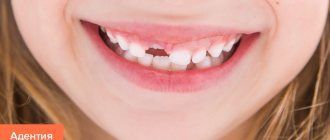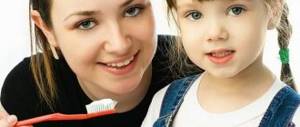One of the most common human diseases, but at the same time the most often ignored, are diseases of the oral cavity. They are often not given due attention until a peak occurs, which is accompanied by severe and almost intolerable pain. And at that time, general health criteria are determined by the condition of the oral cavity, because even “harmless” caries can provoke diseases of the digestive system, endocrine system, central nervous system, and even blood or heart. Therefore, constant oral care, including timely dental treatment, is the most important condition that must be observed in order to have good health. The need for prosthetics should not be neglected, since missing teeth is not only an aesthetic problem, but can also negatively affect overall health.
The most common cause of oral diseases is failure to comply with hygiene standards. Many processes that later develop into a serious illness initially pass without obvious symptoms and may not bother you at all. Nevertheless, even at the initial stage of the disease, its timely detection and prevention is possible. Of course, the treatment of any diseases of the oral cavity is the professional task of a dentist, who can accurately diagnose, determine concurrent diseases and their appropriate therapy.
Prevention of oral diseases
When they talk about the prevention of oral diseases, they primarily mean:
- Self-regular oral care.
- Periodic visits to the dental clinic.
Why do you need to take care of your mouth? The fact is that after each meal, food particles remain on the teeth and mucous membranes of the mouth, as a result, upon contact with saliva, bacteria and microbes begin to multiply in the mouth, which ultimately leads to the appearance of caries, bad breath, plaque and dental plaque. stone
Some people, unfortunately, do not understand the importance of this procedure, erroneously claiming that animals don’t brush their teeth or anything. But we must not forget that animals live much shorter lives, and, most importantly, they monitor their diet, consuming sufficient quantities of food of plant origin.
Prevention of caries
This pathological process of changes in enamel and hard tissues affects up to 98% of the entire population of the planet, so the relevance of preventive procedures for this disease does not need to be confirmed.
Measures to prevent the occurrence and development of caries:
- It is important to monitor your diet: protein foods, foods that contain large amounts of amino acids, trace elements and vitamins (especially calcium and phosphorus), are an excellent non-drug method for preventing caries.
- At the same time, you should limit your carbohydrate intake, give preference to sweeteners, and avoid drinking too hot or too cold drinks.
- Regular and thorough oral hygiene, which is accompanied by the use of toothpastes that have a therapeutic and prophylactic effect.
- The use of various kinds of complexes of vitamins, macro- and microelements, which the body (especially a growing one) needs most.
- Applications, rinses, baths, electrophoresis, which are carried out by various remineralizing agents.
Brushing your teeth with a toothbrush
The most important thing in preventing oral diseases is brushing your teeth. Every person, regardless of age, including children, should brush their teeth morning and evening. Moreover, observing certain rules.
- You need to brush your teeth for at least five minutes.
- Brush your teeth with rotational movements, otherwise, if you brush straight, the plaque will simply be driven into the gum pockets and between the teeth.
- Do not press the brush too hard to avoid damaging the enamel.
- When brushing your teeth, mentally divide all your teeth into four sections and brush each one separately so as not to spread germs throughout the jaw.
- You need to brush not only the teeth from above, but also near the gums, at the base, and also the gums themselves.
- Dentists recommend placing the brush at an angle of 45 degrees when brushing your teeth.
- First you need to brush the far teeth of the upper jaw, then the front teeth, turning the brush vertically, and then start cleaning the teeth of the lower jaw. Finish brushing your teeth by massaging your gums and brushing your tongue.
- In this case, you should take no more than a pea-sized amount of toothpaste.
Methods for preventing dental diseases
Prevention is not only a medical, but also a social, personal matter for each person, in which hygienic aspects play the most important role. - Primary disease prevention is designed to protect unimpaired health and has both a general health-improving nature - maintaining a healthy lifestyle, nutrition, and a strict purpose - identifying risk factors for the development of carious disease. — Secondary prevention is designed to prevent the development of complications of diseases and their reappearance. Its main activity is sanitation of the oral cavity, that is, a planned system of treatment of teeth and other organs of the oral cavity, regular examinations, twice a year. — Tertiary prevention is aimed at restoring functions lost as a result of complications of the disease and eliminating complications arising from this disease. This is done by surgeons and orthopedists - dentists. At first glance, health is the absence of diseases, however, health is a state of complete physical, spiritual and social well-being, and a healthy lifestyle corresponds to the optimal and harmonious development of the individual.
Methods for preventing major dental diseases are divided into three groups:
- communal methods (fluoridation of water, salt and milk consumed by people daily);
- group methods (in kindergartens, schools, antenatal clinics, preventive work in teams at enterprises, providing knowledge about personal hygiene, proper nutrition, good and bad habits, the need for oral examination);
- individual methods (prescribed and carried out individually in accordance with the detected health characteristics of the body and the dental system).
The main preventive measure that should be carried out for all people without exception is oral hygiene. Its main purpose is to remove plaque, food debris, and also introduce agents that have a positive effect on the organs and tissues of the oral cavity (F, Ca). Regular gum massage while brushing your teeth improves blood circulation in the gum tissue. A toothbrush should be strictly individual for each family member. They are produced by many companies and differ from each other in rigidity, beam height, their location, shape, size (for children, adults), and purpose (for example, orthodontic).
The individual approach in choosing this seemingly simple, but very important hygiene item remains unchanged. However, it only carries out mechanical removal of plaque from the surface of the teeth, tongue, and cheeks. Chemical cleansing is carried out using toothpaste. It represents a whole system of components that determine its properties, purpose and effectiveness. Hygienic and therapeutic and preventive, whitening, reducing tooth sensitivity, anti-inflammatory pastes, pastes for smokers, pastes for weight loss, children's gels with aromatic additives - these are just a few groups of personal hygiene products existing and on the market. Clinical studies have shown that the use of appropriate toothpastes significantly helps to reduce (on average by 25-30%) the increase in caries in permanent and primary teeth, improve the hygienic state of the oral cavity (24-46%), and reduce inflammation in periodontal tissues ( by 33-58%). Another preventive technique is rinsing the mouth after eating with water or special solutions, dental elixirs, solutions that prevent the formation of plaque, etc. Their range is quite wide and they are also divided into therapeutic, preventive and hygienic. They prevent the formation of plaque, improve the cleaning of the surface of the teeth, and deodorize the oral cavity. To thoroughly remove plaque and food debris from hard-to-reach contact surfaces of teeth, flosses (dental floss), interdental brushes, brushes and toothpicks are intended. Chewing gums are products that can improve oral hygiene by increasing the amount of saliva and the rate of salivation. They help clean tooth surfaces and neutralize organic acids produced by plaque bacteria. We must also not forget about the general state of human health. Prevention of major dental diseases must be carried out simultaneously with monitoring of somatic status - these are the principles of the approach to individual prevention of dental diseases. Professional oral hygiene. Recently, many manufacturers of dental equipment have been paying special attention to preventive tools. The formation of personal hygiene skills in people does not give the desired effect on its own, and only through regular professional hygiene is it possible to prevent caries and periodontal diseases. Professional cleaning involves removing all soft and hard plaque from all surfaces of the teeth and then polishing them. There are several ways to remove plaque and plaque:
- manual method. He holds the historical championship. A physician with specialized manual skills in the use of hand instruments can use them for a wide range of clinical situations.
- chemical method. It is based on softening dense dental deposits of a smoker and transforming them into a looser structure that offers little resistance when removed.
- air-abrasive method (Air-Flow method). This device uses a water-air-abrasive jet using abrasive powders and particles of various shapes. It is recommended to be used for mild pigmentation and for polishing surfaces after using ultrasonic devices.
- ultrasonic method. It requires less time and is less traumatic for soft tissues, has an antimicrobial effect, is effective in hard-to-reach places, but requires additional polishing.
Thus, at present it is possible to choose a method of professional oral hygiene individually for each patient, taking into account the history of his illnesses. Thanks to professional hygiene, the causes of caries and periodontal diseases, including bacterial accumulations of plaque, are eliminated.
N.V. Savkina
Head of the Dental Department
UZ GK BSMP
How to choose the right toothbrush
Just as important as brushing your teeth is choosing a good toothbrush. Experts advise purchasing a brush with artificial bristles, which is considered more hygienic, practical and durable. As for the optimal degree of hardness, if the patient does not have any special indications, a regular brush of medium hardness will suit him.
It is also worth paying attention to the size of the toothbrush - optimally it should cover three teeth.
We must not forget that the brush needs to be changed periodically. It’s difficult to say how often to do this, because for some the brush can wear out in a month, while for others it can last two to three months. This depends on many factors, in particular, how often you brush your teeth, with what force you do it, how long the procedure lasts, and what toothpaste you use.
Therefore, some dentists advise purchasing toothbrushes with colored tufts of bristles, which are indicators. On a new brush they are always bright, and when the bristles wear out, they take on a pale blue tint. Noticed this on your toothbrush? It's time to go to the pharmacy for a new one.
If your brush does not have such indicators, simply change it at least once a quarter.
Recently, electric toothbrushes have become popular, although the attitude towards them from professional dentists is rather ambiguous. Therefore, before purchasing such a modern brush, it is better to consult your doctor.
Battery-powered teeth polishing devices are also available on the market. According to dentists, they can be used, but not often, as they can damage the enamel.
Eating habits
The condition of our teeth largely depends on what we eat. It is recommended to minimize the intake of fast carbohydrates (various sweets, flour, carbonated sweet water, etc.). It is necessary to saturate the diet with fermented milk products, fresh fruits and vegetables. It is important that the body does not experience a deficiency of vitamins or microelements.
Important! Food that is too cold or hot is extremely harmful to teeth; this can lead to increased sensitivity of the enamel.
Toothbrush care
There are also rules on how to care for your toothbrush so that it helps maintain oral health and does not harm your teeth and gums. What is needed for this?
- Never give your own toothbrush or borrow someone else’s toothbrush, even from your own family members.
- After each brushing procedure, the brush should be washed with soap. You can use it next time only when it is completely dry.
- It is advisable for each person to have two brushes: one for use at home, the second “travel brush” to take with you on trips.
- To clean the brush from germs, you can use various antiseptics or rinses.
- Each brush should be dried in a cup separately from the others, without touching them. Ideally, you can use a “cap” or case for each brush.
Oral hygiene products and their choice
Properly selected means for cleaning teeth and treating the oral cavity play a major role in the prevention of caries. They must correspond to individual anatomical features, the condition of the teeth and soft tissues of the oral cavity.
Requirements for a toothbrush
The shape of the brush is very important; it should be curved and have a narrow cleaning head. It is better to choose an option with sparsely located bristles, this way hard-to-reach places, gum pockets and interdental spaces are better cleaned. The degree of stiffness of the brush also matters: soft, medium or high. If there is damage to tooth enamel, cracks, or bleeding gums, you need a soft brush; for healthy teeth, you can use a hard one, and a medium one is suitable for almost everyone.
Caring for your brush is important because it retains a lot of germs. After each cleaning, it should be thoroughly washed with soap and running water and stored in a special stand or glass with the head up. It is also recommended to leave it soapy after washing. You need to renew your toothbrush every 2-3 months.
How to choose toothpaste
The entire variety of toothpastes is divided into 2 categories:
- hygienic, intended for cleaning, whitening teeth and refreshing the oral cavity;
- therapeutic and prophylactic, which include antiseptics, enzymes, mineral salts, plant extracts, biologically active substances.
It is better to give preference to the second type of paste even for those who have healthy teeth, in order to prevent caries, periodontitis and other diseases. Your dentist will help you make the best choice after examining your mouth.
Application of dental gels
A relatively new hygiene product is gels for teeth and gums, which contain various medicinal substances and are used for treatment. The composition may contain analgesic and antiseptic ingredients, for example, Cholisal, Metrogyl Denta gels, biological stimulants of healing and restoration - Asepta, Solcoseryl gels, fluorine and other minerals - Emofluor, Paro gels, as well as extracts of medicinal plants. A dentist prescribes this or that type of gel.
Use of dental elixirs
These products are recommended for rinsing the mouth after eating and drinking; they have antiseptic and deodorizing properties. They may also contain biological stimulants, extracts of seaweed and other medicinal plants (Biodent-2, Fitopon, Fitodont, Elam and others).
Using dental floss
Floss or dental floss is very popular today. Dentists definitely recommend them as a means of cleaning interdental spaces, and therefore preventing inflammation and caries. Floss should be used twice a day before brushing and rinsing. The shape and thickness of the thread are selected depending on the structure of the teeth and the width of the interdental spaces. The attached instructions must be strictly followed.
Use of dental irrigators
Dental irrigators are know-how in dentistry that allow you to clean dental tissue and gum pockets more thoroughly than a brush or floss. They are miniature electrical devices that generate a jet of liquid under high pressure, which penetrates and cleans all hard-to-reach places. Irrigators are considered a universal care product, do not damage gums, and are ideal for cleaning braces and dentures. The device comes with a set of attachments for cleaning any areas of the dentition and oral cavity. It is possible to use special rinses and dental elixirs.
The most effective oral care depends on the correct choice of hygiene products. In these matters, it is better to follow the advice of your dentist.
How to choose toothpaste
When choosing a toothpaste, it is a good idea to consult your doctor. Do not get carried away with abrasive toothpastes: it is better to alternate them with regular ones. For children, you should buy special children's pastes, according to their age. For people with sensitive gums and teeth - professional pastes.
In general, all toothpastes that are available in pharmacies today can be divided into:
- hygienic, which are suitable for everyone, as they do not contain special medicinal components;
- therapeutic and prophylactic: they can also be used daily as a prophylactic against various diseases;
- medicinal: they should be used only as prescribed by a doctor.
If for some reason a person does not like toothpastes, then he can use special dental gels to clean his teeth. However, we must not forget that in terms of their abrasive properties they are significantly inferior to pastes.
And during the day, when it is not possible to use toothpaste, or after morning or evening brushing, you can use dental elixirs.
We recommend Asepta toothpastes. They are designed to meet all oral hygiene requirements. The components they contain effectively clean teeth, strengthen enamel, prevent the occurrence of caries, and gently freshen breath.
Why does caries occur?
The main cause of caries is the activity of microorganisms, but prevention is mainly not aimed at combating them. The human oral cavity is home to many bacteria, and their number can reach a million within 2–4 hours after brushing your teeth. They are found on the surface of the teeth and can negatively affect the enamel. Some types of streptococci deserve special attention. These microorganisms are part of the normal microflora, and in the absence of factors that weaken the body's defenses, caries does not develop.
If bacteria receive favorable conditions for active reproduction, they become more numerous. As a result of their vital activity, organic acid is produced, which literally dissolves areas of enamel. By favorable conditions we mean several features: a good nutrient medium for microorganisms, a decrease in local or general protective forces that fight streptococci, or a combination of these factors.
Factors that provoke the proliferation of cariogenic bacteria:
- hereditary predisposition. Thin enamel with a weak structure can be inherited from parents. In this case, the tissues are less resistant to the effects of acids, and caries can develop from an early age;
- thinning of enamel associated with impaired mineral metabolism or lack of minerals. The main reasons are diets or a poor diet, gastrointestinal diseases, in which nutrients are less absorbed;
- increased viscosity of saliva. If the fluidity of saliva is insufficient, the enamel surface is not washed properly, plaque remains and quickly accumulates on the teeth. Changes in the viscosity and composition of saliva may be associated with systemic diseases, infections, endocrine disorders, etc.;
- crowded teeth, malocclusions. The tight fit of teeth to each other makes hygiene difficult; a large amount of plaque and food debris accumulates on and near the contact surfaces;
- lack of hygiene or improper hygiene, consumption of sweet, sticky foods;
- Features of work activity: work in hazardous industries associated with inhalation of acid fumes;
- chipped and cracked teeth: exposed enamel and uneven surfaces are more susceptible to harmful effects.
There is one reason for the development of caries, but there are many mechanisms of development. This is why it is so important to monitor your overall health to prevent oral diseases. However, there are several specific methods for preventing caries.
Ask a Question
Clinical researches
ASEPTA toothpastes are clinically proven effective. For example, repeated clinical studies have proven that regular use of preventive toothpaste ASEPTA SENSITIVE for a month can reduce bleeding gums by 62%, reduce the sensitivity of teeth and gums by 48% and reduce inflammation by 66%.
In addition, it was proven that regular use of professional toothpaste ASEPTA COFFEE AND TOBACCO for a month improved the hydration of the mucous membrane by 3.3 times, the remineralizing efficiency increased by 3.9 times, at the same time, the cleansing effect has increasing dynamics and reaches 60.5% at 4 weeks of use.
Sources:
- Clinical studies of antisensitive toothpaste “Asepta Sensitive” (A.A. Leontyev, O.V. Kalinina, S.B. Ulitovsky) A.A. LEONTIEV, dentist O.V. KALININA, dentist S.B. ULITOVSKY, Doctor of Medical Sciences, Prof. Department of Therapeutic Dentistry, St. Petersburg State Medical University named after. acad. I.P. Pavlova
- Report on determining/confirming the preventive properties of toothpaste “ASEPTA PLUS” COFFEE and TOBACCO Author: doctor-researcher A.A. Leontyev, head Department of Preventive Dentistry, Doctor of Medical Sciences, Professor S.B. Ulitovsky. First St. Petersburg State Medical University named after. acad. I.P. Pavlova, Department of Preventive Dentistry
- Report on determining/confirming the preventive properties of toothpaste “ASEPTA PLUS” GENTLE WHITENING” Author: doctor-researcher A.A. Leontyev, head Department of Preventive Dentistry, Doctor of Medical Sciences, Professor S.B. Ulitovsky First St. Petersburg State Medical University named after. acad. I.P. Pavlova, Department of Preventive Dentistry
Role of parents
Hygiene begins even before the first teeth appear. This is important for young mothers and fathers to understand.
An infant is defenseless; you need to take care of its delicate gums, preventing germs from entering. They can cause infantile thrush, stomatitis and other unpleasant diseases. All objects that enter the child's mouth must be washed with boiled water.
Parents rarely pay attention to little things. But it is precisely in them that the devil lies. If you drop your baby's pacifier, it is better to rinse it with boiling water. Under no circumstances should you lick it yourself. Otherwise, your germs may settle in your child's mouth. This also applies to feeding the baby. Do not taste food with the spoon you are going to feed. Wipe your baby's gums with special wipes or fingertips. They can be bought at any children's pharmacy.
Cleaning baby teeth
Your child has grown up and has his first baby teeth. It is very important to teach them to clean them on their own, without reminders. This is quite a difficult task. As a child, it is difficult to understand the meaning of brushing your teeth. And child psychologists have come up with two simple ways to deal with this:
- Turn brushing your teeth into a game. Create a joyful atmosphere, sing funny songs. Give your brush magical properties by associating it with a hero from a fairy tale, making microbes your evil enemies. Experiment and don't be afraid.
- Set a good example for yourself. Brush your teeth regularly with your child. Over time, he will begin to copy your actions. And it will become a habit.
It’s good if the children’s brush is colored, stylized as a “cartoon” character. This will give the child additional incentive.

